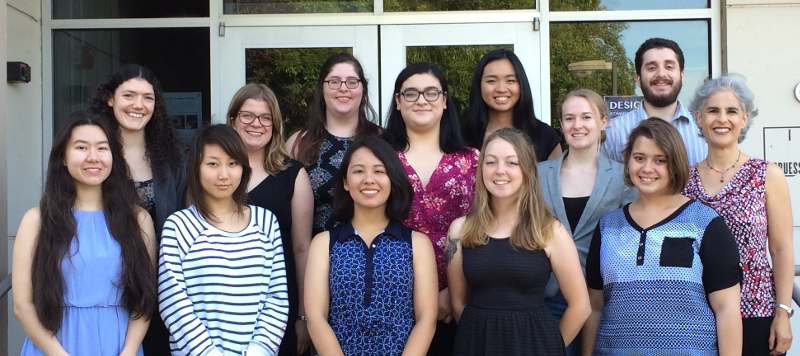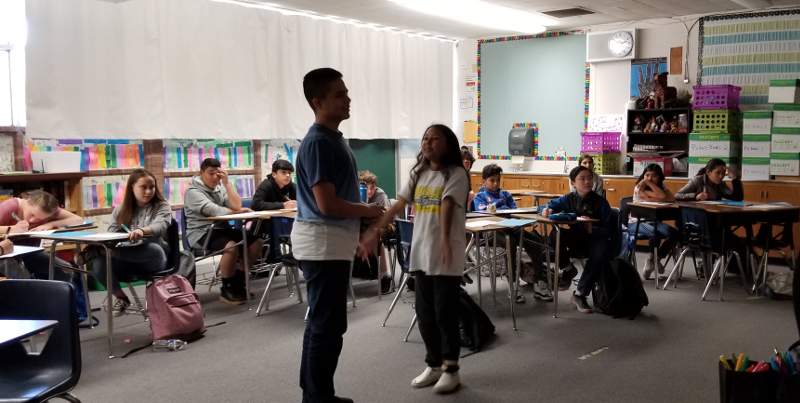Davis English Department Teaching Internship Program Brings Shakespeare to Local Schools

This year, undergraduate students in the UC Davis English Department have been bringing an augmented reality video game called Play the Knave to area K-12 schools. The game allows players to perform their own versions of Shakespeare’s plays.
The project aims to expand student engagement with Shakespeare’s work, as well as the teaching of video games. Students in the department’s Teaching Internship Program have been learning to plan classroom activities, present the game, and research the effectiveness of their approach. They take on role of teachers, developers, and researchers in the process.
Play the Knave is designed by English Professor Gina Bloom and the UC Davis ModLab. It is a co-op game playable by up to four players and allows participants to “use their bodies and voices to create a short animated production of a scene from Shakespeare,” explains Bloom.
“After designing their virtual production (choosing a theater stage, avatars as the actors, and background music),” Bloom writes, “users work together to perform the scene karaoke-style on their chosen set: Shakespeare’s lines appear on screen for them to read, and a motion-sensing camera allows them to move their avatars around the virtual stage using their own bodies.”
By using their bodies to control avatars and perform the text, “drama students cannot help but become aware of the digital mediation of their bodies, and, by consequence, of embodied difference.” Thus, “Videogame technology, [. . .] rather than eliding the body, has the potential to activate attention to the diverse bodies of students who play.”
Davis students joined the program for a variety of reasons. For some, it was their desire to educate. “I'm interested in a teaching career,” said Emily Stack (’19). “I hope to gain more experience in the classroom as well as experience designing my own lesson plans.” For others, it was the innovative approach to Shakespeare that drew them. “I love Shakespeare and wanted to help teach Shakespeare in a way that engaged students despite the difficult language it is written in,” Natalie Hill (’19) told us.

Students at Douglass Middle School perform Shakespeare using Play the Knave. Photo Credit: Natalie Hill
For all, though, the classroom visits—in which they brought Play the Knave to K-12 students —were a highlight. Though “some students just read the lines,” Mariela Sanchez (’18) noted, “a few read the scenes with gusto, placing their own spin on the scenes.” Emily Stack (’19) found that, “The best moments were when the kids were all laughing about a performance—it fostered a sense of genuine closeness and connection that's often difficult to find in a traditional classroom setting.” The game really encouraged students’ engagement and understanding, according to Kirsten Burrell (’18). “I was delighted to see so many students raising their hands to participate,” she wrote. “I was so surprised by how much the performances seemed to help their comprehension of the scenes and provide material for their group discussions.”
Though Rachel Cowen (’19) visited multiple classrooms, the best was a 4th grade class in Rio Del Mar, CA, where “a small group [of] ‘advanced readers’ […] formed a study group and elected to learn Shakespeare.” It was this group of interested students that brought Play the Knave to their school. “Those students were my first volunteers to play the game,” Rachel told us, “and their excitement spread to the entire class. They were able to show their passion for the text through the game performance and got their fellow students to be fully engaged as well.” Through the small spark of this group’s curiosity, the Teaching Internship Program “was able to spread the excitement and passion that so many of us interns feel to the next generation of students.”
